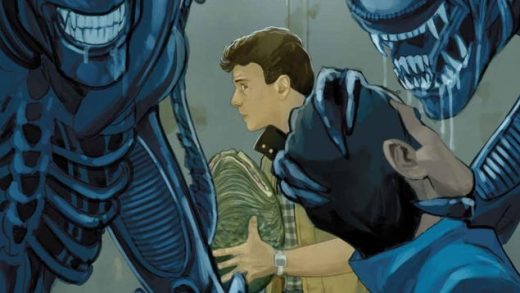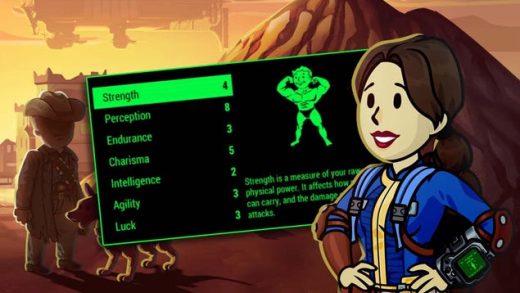The Last Argonaut
On the anointed day at the chosen hour, the wind coming out of the east was calm and incidental. This angered Bob and he lashed out at the woman he had hired to dance for him at the Days Inn.
“Slower, goddamn you. Sensual. Do you know anything of burlesque, of the great French symposia,” Bob said from the armchair. He caressed his unflown box kite and watched Miss Priscilla dance satirically in slow motion.
“You know what, fuck you, you demented woman. Just dance normal,” Bob said.
Miss Priscilla resumed aggressively humping the air and Bob took a pull of 100-proof whiskey. Bob was going to drink and Miss Priscilla would dance until Judgment Day.
The Nacogdoches Kite Festival had been scheduled for earlier that afternoon. But a near windless pall had settled over the county. The pines stood upright and the water in Lanana Creek sat still and limpid. Bob was inconsolable. Dr. Thibodeaux, the organizer of the event, had not consulted the meteorology.
“We are lions being led by donkeys!” Bob yelled to his fellow kite flyers.
“Alright, calm down, Bob,” said Thibodeaux.
“I will not be calm, sir!” Bob shouted. “I’ve waited all goddamn year for this.”
Bob was so upset he debauched himself with Miss Priscilla and whiskey and Pizza Hut and a rack of Lone Star beer and donuts and the Book of Mormon and its prurient space opera. He woke up the next day to the rustling of the wind.
Bob ordered a beer and a shot at the Chili’s where the kite flyers day drank. He downed both.
“Who will ride with me to Aqaba?” he asked. No one answered.
“Goddammit,” Bob said, “Is there not a fellow Argonaut among you?”
Dr. Thibodeaux got up from his table and said, “Bob, we don’t want you in the club anymore. Most of us are parents. We don’t want you around our children.”
Bob took another shot of whiskey. “You’ll apologize for that, and offer your resignation,” Bob said. Bob then turned to the rest of the kite flyers and added, “When I am president of this venerable club, please know that your children will be banned from our events, because they are clumsy and vicious. They have no goddamn business flying kites. They don’t have the artistry or the resolve.”
The kite flyers responded to Bob’s assertion by physically assaulting him. Dr. Thibodeaux and Martinson, whose son really was an oaf, held Bob back for a few minutes while the others punched him in the kidneys. Finally, the bartender, also a kite flyer, said enough was enough and Bob was allowed to stumble into the parking lot. It was a fair and compassionate beating.
Bludgeoned, Bob had returned to his motel room, called for Miss Pricilla and Pizza Hut, and drank whiskey, far too much of it. How had kite flying become as booze-fueled as horse racing? When Bob was young he used to fly kites sober and innocent on his father’s land in Nebraska. Between the harvesting of summer corn and planting of winter wheat, Bob would sail his Dopero across the sky, despite this being pheasant hunting season. His father would stave off the roving gunmen. “That is my boy,” Bob’s father would say, “Let him be, for he flies kites thrice as well as the best pheasant gunman shoots.”
“Thrice!!!” Bob Sr. would shout, rising from his chair on the front porch with fine, terrible anger.
But when Bob turned twenty-five, his father brandished his own Remington and shot down the Dopero as if it were a migratory bird. “Kite flying is the purview of children. You look insane and unprofitable,” Bob’s father told him. Bob realized his father was right, that an adult kite flyer is a highly unsocial specter but fifty adult kite flyers must be a society unto themselves. So Bob joined a kite flying club in Lincoln. He was quickly dismissed for his exacting standards and contempt for children. Then they kicked him out of Omaha. Then Kansas City and Topeka. He had slowly worked his way south over the years, trying to live on a small allowance provided by his father’s estate. In total, Bob had been expelled from nearly three dozen fraternal organizations devoted to the flying, building, preservation, and repair of kites.
Bob was soon drunk and he wept openly, sprawled across the bed.
This alarmed Miss Priscilla. She had never seen Bob cry before, in all the days she had watched him drink and curse the Soviet bureaucracy of kite flying. So she learned how to dance the burlesque from YouTube. Then she danced for Bob, at the correct pace, with the perfect balance of feigned eroticism and bemusement. And Bob smiled through his tears and applauded.
“Miss Priscilla, will you come fly kites with me?” Bob asked.
“No,” Miss Priscilla announced. “You still ain’t right. Not tried to ride me the once.”
“How can you speak of procreation in my hour of want!” Bob screamed at Miss Priscilla. He threw cash at her and she went.
Bob drove to the park. Screw them all, Bob thought. He unfurled his line and watched his box kite advance. It was beautiful in the warm green air of Nacogdoches. Bob felt at peace. He owed Miss Priscilla an apology, he thought. He would track her to the bar and buy her a gin martini and a steak. Bob would finally admit to Miss Priscilla that she too was beautiful and kind in her own way. And he would forgive Dr. Thibodeaux and the others. Thibodeaux would embrace Bob at the Chili’s and say to an incensed Martinson, “you are ever with me, and all that I have is yours, but thy Bob was lost and now he is found.”
Families with small children arrived for a birthday party at the park. A child of perhaps seven walked over to Bob and pointed at his box kite dancing in the wind and then looked up to Bob with tender, expectant eyes. Bob recognized himself in the boy, his eagerness to take up the reel and line and explore the vast and open spaces of this country. Kite flying might even be an Olympic sport one day. This is what Bob had wanted for himself, for life to be easy and gracious.
But Bob lived out of cheap motels, alone. He watched salacious videos of women dancing, alone. He sold his plasma to afford whiskey, bamboo and silk. Bob had scurvy because he only ate Pizza Hut. Outside Fort Worth, several convenience store robberies were perpetrated by a masked bandit who bound the cashiers’ hands with kite string. The bandit usually wept. When Bob’s father passed away, Bob did not go to the funeral. The winds in Salina were too promising.
The boy gestured for the reel and line, and Bob ran away from him. The boy laughed and gave chase, thinking Bob was being playful. But Bob fled in moral terror. He would not be responsible for setting this child on the kite flyer’s path of misery and violence. Bob would keep running until he found Miss Priscilla at the bar. She would be drunk on gin and so proud of him. When he looked back he saw that the boy had been joined by the other children, a horde of them laughing and chasing after Bob. Bob ran as fast as he could. He did not see the new sewer ditch on the north side of the park. Bob stumbled and broke his neck. His body lay in the ditch. Wholly innocent of the world, the children noticed only that Bob had relinquished the kite at last, and they cheered wildly.
The post Let Nothing Come Between a Man and His Kite appeared first on Electric Literature.










